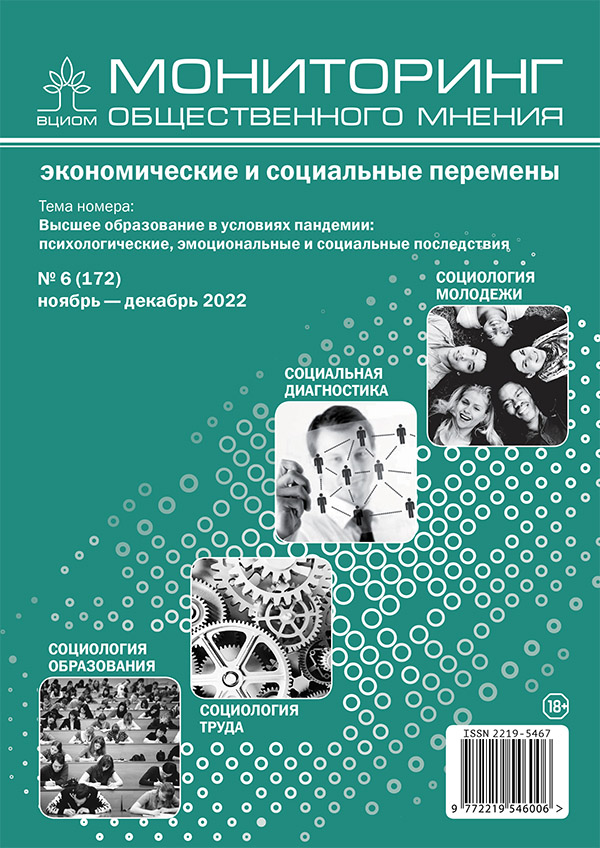The Role of Freelancers’ Ego Networks in Increasing Themselves Accumulated Capital
DOI:
https://doi.org/10.14515/monitoring.2022.6.2284Keywords:
freelancers, ego networks, accumulated capital, strength of bond between alters, human capital, social capital, horizontal careerAbstract
In recent years, the accelerated development of IT technologies and the epidemiological situation kept transforming common labor practices. Both the employers and the employees might be seen as beneficiaries of this process. The former gain the ability to attract contractors for specific tasks, while the latter diversify their employment. As a result, e-freelancing remains an attractive alternative to traditional employment. Differing in the nature and length of cooperation, this labor strategy has a common feature with traditional employment, namely, the importance of developing networks with employees. The ego networks built from professional and personal contacts not only facilitate the search for new orders, ease the freelancer's operations and provide moral support, but also serve as the basis for accumulated capital. Such capital allows to uniquely present professional experience to customers, despite the standardized form of personal profiles on the freelance platforms.
This study aims to establish links between e-freelancers' accumulated capital and their ego networks. Empirically, the study bases on the online survey of freelancers registered on Russian platforms such as Workspace and Freelancehunt (N=136). Linear regression modeling shows a significant relationship between accumulated capital and the strength of bonds between important members of the ego network.
Acknowledgments. The article was prepared within the framework of the HSE University Basic Research Program. The authors express their gratitude to the management of the platforms for their assistance in providing access to the respondents.
Downloads
Published
How to Cite
Issue
Section
License
Copyright (c) 2022 Monitoring of Public Opinion: Economic and Social Changes Journal (Public Opinion Monitoring) ISSN 2219-5467

This work is licensed under a Creative Commons Attribution-NonCommercial-ShareAlike 4.0 International License.






